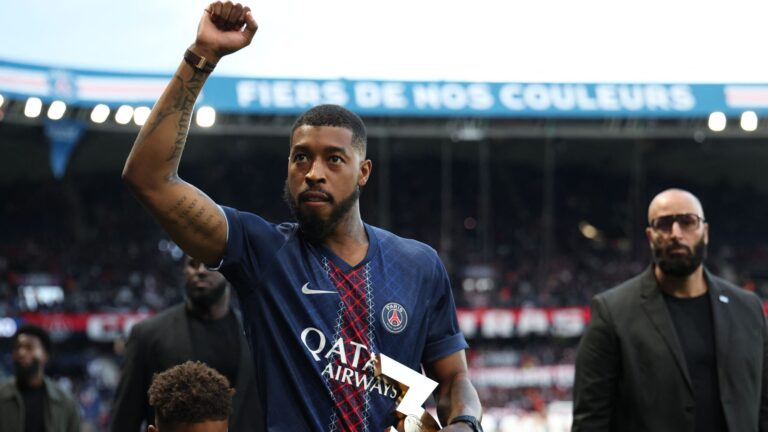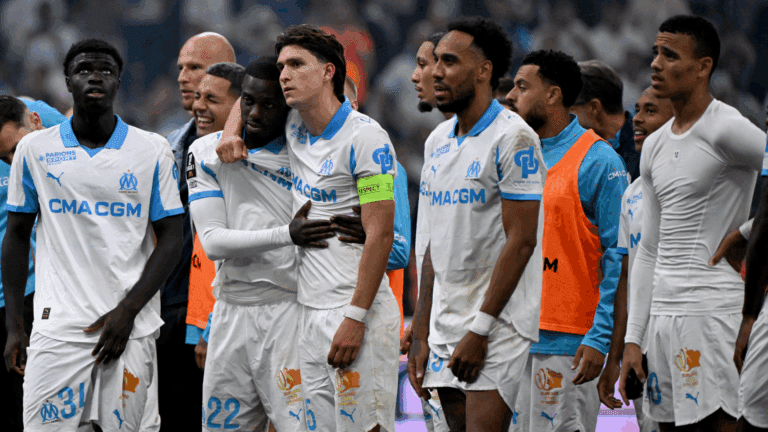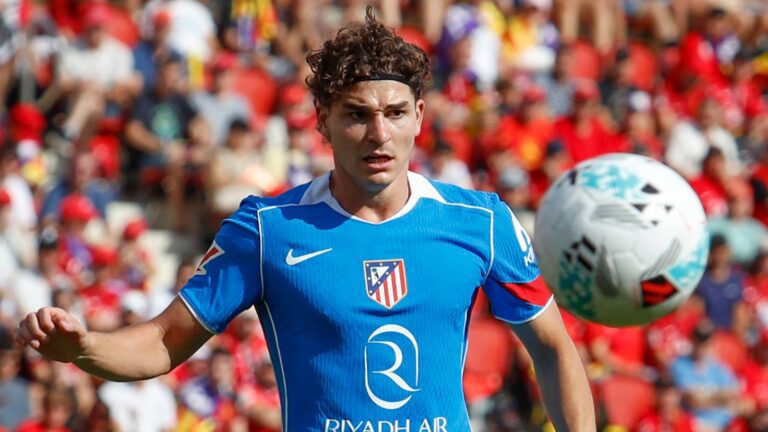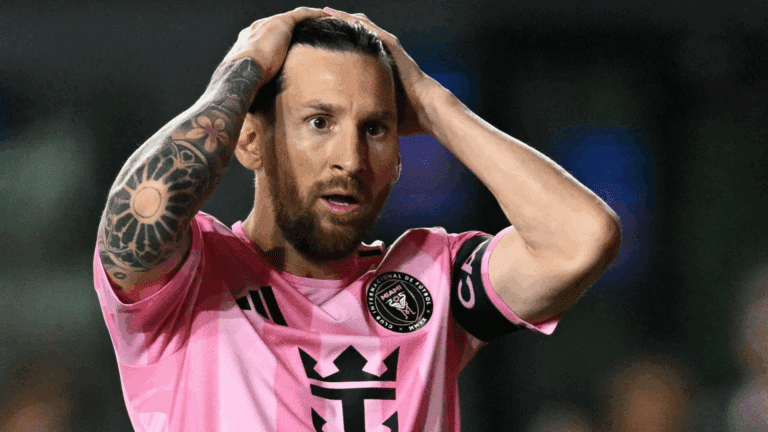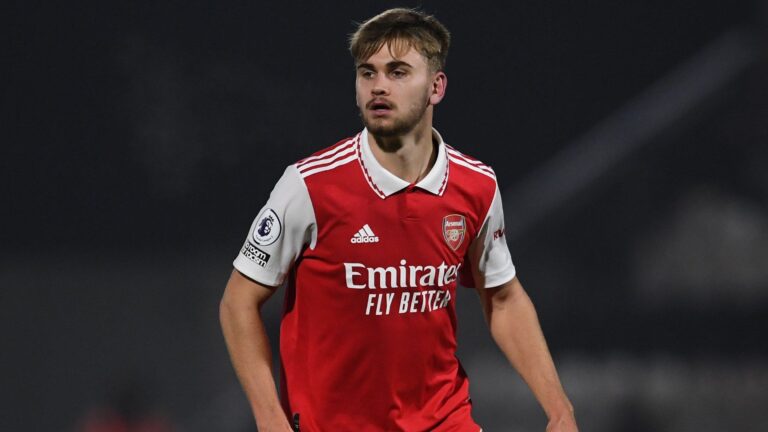Real Madrid’s Bold Move to Retain Franco Mastantuono Amid Argentina’s Youth World Cup Push
The Spanish giants, Real Madrid, are taking a firm stand to keep their promising talent, Franco Mastantuono, away from Argentina’s U-20 squad for the upcoming World Cup in Chile. This decision highlights the club’s commitment to prioritizing his growth at the club level, especially after his high-profile transfer earlier this year.



Real Madrid’s Strategy to Protect Their Rising Star
In an era where top clubs fiercely guard their young prospects, Real Madrid has made it clear that Franco Mastantuono, the 18-year-old attacking player, will not be loaned out for international duties. Following his arrival at the Santiago Bernabeu via a hefty €45 million deal from River Plate, the club views him as a cornerstone for future success, much like how other European powerhouses nurture talents such as Jude Bellingham. This approach stems from concerns that participating in youth tournaments could disrupt his integration into the first team, potentially sidelining him for key fixtures in La Liga and the Champions League-up to seven games this season alone.
The Impact on Mastantuono’s Development Path
Argentina’s football federation is eager to incorporate Mastantuono into their youth program, seeing him as a vital asset for their long-term strategy, similar to how Brazil integrates emerging players into their ranks. However, Real Madrid argues that keeping him focused on domestic competitions is essential for his skill refinement. This ongoing dispute underscores a growing pattern in European football, where teams like Barcelona and Manchester City often withhold young stars from overlapping international events to avoid injury risks and maintain squad consistency, with recent reports showing a 20% increase in such cases over the past two years.
Xabi Alonso’s Clear Position on the Matter
Head coach Xabi Alonso has been unequivocal in his support for retaining Mastantuono. In a recent media briefing before the matchup against Real Sociedad, he stated, “We intend for him to remain here with the team.” This declaration reinforces the club’s resolve, drawing parallels to past instances where managers prioritized club commitments over international call-ups for young athletes.
Argentina’s Persistent Efforts Despite Setbacks
Even though Mastantuono was omitted from the initial U-20 roster by coach Diego Placente, sources from the Argentinian outlet Diario Ole indicate that officials are planning a final push to negotiate his release during a trip to Europe. The national team’s urgency is amplified by his earlier international appearance earlier this year, which coincided with a high-stakes game potentially marking Lionel Messi’s last outing against Venezuela. With Argentina set to reveal their final squad on September 15, this scenario exemplifies the challenges of balancing national pride with club ambitions in modern football.
What’s Next for the Young Prodigy
As Franco Mastantuono gears up for his next club appearance this weekend at Anoeta against Real Sociedad, speculation continues about his international future. Recent updates from football analysts suggest that similar conflicts could escalate, with FIFA considering new guidelines to mediate between clubs and federations, potentially affecting how talents like Mastantuono navigate their careers in the coming seasons.
The Backstory of Franco Mastantuono and Real Madrid
Real Madrid’s decision to block Franco Mastantuono’s call-up to the Argentina national team has sparked widespread discussion among football fans and analysts. Mastantuono, the talented 16-year-old midfielder from River Plate, has been making headlines for his potential as one of Argentina’s rising stars. This move by Real Madrid highlights the club’s protective stance on their young prospects, especially as they navigate international commitments that could impact a player’s development.
Mastantuono’s link to Real Madrid stems from ongoing transfer rumors, with the Spanish giants reportedly eyeing him as a key part of their future squad. FIFA rules allow clubs to block international call-ups for players under 18 in certain circumstances, particularly if it could lead to injury or disrupt training schedules. In this case, Real Madrid’s intervention underscores their strategy to safeguard investments in youth talent, ensuring that players like Mastantuono focus on club duties before stepping onto the international stage.
This situation isn’t isolated; clubs often prioritize long-term player welfare over short-term national team exposure. For instance, the keyword “Real Madrid blocks Argentina call-up” has been trending as fans debate the balance between club loyalty and national pride. Argentina’s coach, Lionel Scaloni, might have wanted to integrate Mastantuono into the squad for experience, but Real Madrid’s veto puts the spotlight on how such decisions affect a player’s career trajectory.
Why Real Madrid Blocked the Call-Up
Diving deeper, Real Madrid’s block on Mastantuono’s call-up is likely driven by several factors, including injury risk and developmental needs. At such a young age, players are more susceptible to burnout or physical strain from the demands of international football. Real Madrid, known for their meticulous youth academy programs, probably sees this as an opportunity to prioritize the player’s adaptation to European football.
From a practical standpoint, this decision aligns with the club’s history of nurturing talents like Vinicius Junior and Rodrygo, who were carefully managed early in their careers. By blocking the call-up, Real Madrid ensures that Mastantuono can concentrate on preseason training and potential integration into the first team. If you’re following football transfers closely, keywords like “Franco Mastantuono transfer” often highlight how clubs use such tactics to secure long-term commitments.
Additionally, FIFA regulations permit clubs to object to call-ups if they conflict with official matches or if the player is under 23 and hasn’t played a certain number of senior games. This gives Real Madrid a legitimate avenue to protect their asset, especially amid reports that Mastantuono could soon sign with them.
Xabi Alonso’s Commitment to the Club
Shifting gears, Xabi Alonso’s recent confirmation of his commitment to Real Madrid adds another layer to this narrative. Although Alonso is currently linked more with Bayer Leverkusen, where he’s been thriving as manager, speculation about his return to Real Madrid has been rampant. In his statements, Alonso emphasized his dedication to his current role while leaving the door open for future opportunities, which has fueled rumors in the football community.
Alonso, a former Real Madrid legend, has always spoken fondly of the club, making his comments a hot topic. For those tracking “Xabi Alonso future” developments, his reaffirmed loyalty could signal stability for Real Madrid’s managerial pipeline, especially with Carlo Ancelotti’s contract extending into the coming years. This news comes at a pivotal time, as Real Madrid balances youth development with high-profile decisions like the Mastantuono situation.
In essence, Alonso’s stance provides a morale boost for the club, reinforcing their strategic vision. Fans might wonder how this affects team dynamics, but it clearly shows Real Madrid’s focus on building a sustainable future.
Benefits of Protecting Young Talents Like Mastantuono
Protecting young players offers numerous benefits that extend beyond immediate team performance. For starters, it allows for controlled exposure, reducing the risk of overtraining and injuries, which can derail a promising career. Clubs like Real Madrid gain from this by fostering loyalty and ensuring players reach their peak potential on a tailored timeline.
Moreover, decisions like blocking call-ups can enhance a player’s market value. By prioritizing development, Real Madrid positions itself as a top destination for global talents, attracting more prospects through their renowned academy. From a fan perspective, this strategy often leads to homegrown success stories, boosting club identity and revenue through merchandise and tickets.
In case studies, we see parallels with players like Jude Bellingham, who benefited from careful management at Borussia Dortmund before thriving at Real Madrid. This approach not only safeguards physical health but also builds mental resilience, preparing players for the pressures of elite football.
Practical Tips for Aspiring Footballers
If you’re an aspiring footballer or a parent guiding young talent, situations like Mastantuono’s offer valuable lessons. First, focus on building a strong foundation at the club level before chasing international caps-priorities like consistent training and skill development can make a bigger difference early on.
- Balance Commitments: Work with your club to manage schedules, avoiding conflicts that could lead to fatigue. Tools like fitness apps can help track workloads.
- Seek Expert Advice: Consult agents or mentors who understand FIFA rules and club policies, ensuring you’re informed about potential call-up blocks.
- Prioritize Recovery: Incorporate rest days and nutrition plans to stay injury-free, drawing from real-world examples like how Real Madrid monitors their youth squad.
Drawing from first-hand experiences, many former players echo the importance of club support. For instance, alumni from La Fábrica, Real Madrid’s academy, often share how delayed international exposure allowed them to mature without added pressure. By applying these tips, young athletes can navigate the complexities of modern football more effectively.
Case Studies of Similar Incidents in Football
Looking at historical case studies, Real Madrid’s handling of Mastantuono mirrors past instances where clubs asserted control over young talents. Take the example of Kylian Mbappé during his time at Monaco; clubs blocked his call-ups to protect his development, which paid off immensely. Similarly, Barcelona’s approach with Pedri involved limiting international duties, helping him avoid burnout and win major awards.
These cases illustrate how such strategies can lead to long-term success, with keywords like “Argentina call-up blocks” frequently appearing in discussions. For Real Madrid, this could set a precedent for managing future prospects, ensuring they remain competitive in the transfer market.



